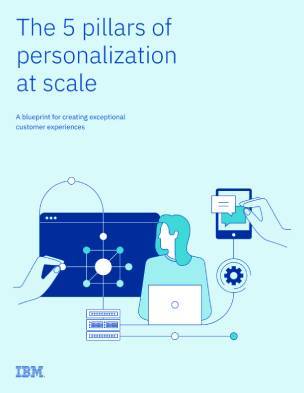GitHub debuts Copilot tool making it easier to give credit to developers
Developers to be shown repository and license information for AI-suggested code matches


GitHub has revealed a new feature for its Copilot pair programmer that will inform developers when code suggested to them by AI is taken from public repositories.
It said the reasoning behind the move is to offer developers greater transparency when it comes to using Copilot’s code suggestions.
“Some want to learn from others’ work, others may want to take a dependency rather than introduce new app logic, and still others want to give or receive credit for similar work. Whatever the reason, it’s nice to know when similar code is out there,” it said.
Currently in private beta, Copilot’s new ‘code referencing’ feature will check code suggestions - including surrounding code of approximately 150 characters - against all public code on the GitHub platform. Any matches, along with repository information, will be shown to the developer.
It is then up to the developer to accept the code suggestion - including information about matches - or block the suggestion.
GitHub estimates that matches will occur in less than 1% of Copilot suggestions, although that figure depends on context.
“In the context of an existing application with surrounding code, we almost never see a match,” it said. “But in an empty or nearly empty file, we see matches far more often.”
Sign up today and you will receive a free copy of our Future Focus 2025 report - the leading guidance on AI, cybersecurity and other IT challenges as per 700+ senior executives
The code referencing solution could make ground on easing the concerns shared among developers and organizations regarding the potential legal issues that could arise from using suggestions from Copilot.
The release will be seen as an acceptance from GitHub that developers wish to know when the suggestions match public code.
RELATED RESOURCE

The five pillars of personalization at scale
Start delivering experiences that will delight and entice your customers.
It comes amid scrutiny of the company over the training of Copilot on publicly available code, including public GitHub repositories.
GitHub continues to wrestle with a class action lawsuit it currently faces, one that was filed in the San Francisco US federal court last year.
The complainants’ case centers around allegations that the company committed “software piracy on an unprecedented scale” by allowing Copilot to suggest code snippets from publicly available open source code repositories.
The case noted that open source projects are protected by a number of different licenses which require developers to correctly attribute the project’s authors’ names and copyright when using its code in other applications.
GitHub faces allegations that by suggesting code snippets through Copilot, it is removing the licenses that protect the open source projects from which the code was suggested, illegally violating their terms of reuse.
GitHub and Microsoft, which owns the platform, have filed multiple motions to dismiss the case, including its most recent effort in June 2023. The former was rejected and the latter will be heard in court in September.
Why do developers need code referencing?
GitHub Copilot was launched in 2021 and is designed to assist developers by suggesting blocks of code based on context.
GitHub describes the tool as the world’s first at-scale AI pair programmer and, according to the company, has trained it on billions of lines of public code.
Recent figures from GitHub suggest it has been used by more than 1 million developers and more than 27,000 organizations to build code faster.
However, GitHub has acknowledged that developers would also like to know when suggestions made by Copilot match public code.
It has been possible to block matching code since 2022. However, in November last year, Ryan Salva, vice president of product at GitHub, said: “While useful in some contexts, blocking matching suggestions doesn’t address all use cases”.
With code referencing, the developer is shown the matching code, the repos where the code appears, and the license governing each repo.
Since the same code might appear in multiple places with occasionally conflicting licenses, developers can decide for themselves on attribution rather than having the matches blocked from the outset.

Richard Speed is an expert in databases, DevOps and IT regulations and governance. He was previously a Staff Writer for ITPro, CloudPro and ChannelPro, before going freelance. He first joined Future in 2023 having worked as a reporter for The Register. He has also attended numerous domestic and international events, including Microsoft's Build and Ignite conferences and both US and EU KubeCons.
Prior to joining The Register, he spent a number of years working in IT in the pharmaceutical and financial sectors.
-
 Microsoft is shaking up GitHub in preparation for a battle with AI coding rivals
Microsoft is shaking up GitHub in preparation for a battle with AI coding rivalsNews The tech giant is bracing itself for a looming battle in the AI coding space
-
 ‘1 engineer, 1 month, 1 million lines of code’: Microsoft wants to replace C and C++ code with Rust by 2030 – but a senior engineer insists the company has no plans on using AI to rewrite Windows source code
‘1 engineer, 1 month, 1 million lines of code’: Microsoft wants to replace C and C++ code with Rust by 2030 – but a senior engineer insists the company has no plans on using AI to rewrite Windows source codeNews Windows won’t be rewritten in Rust using AI, according to a senior Microsoft engineer, but the company still has bold plans for embracing the popular programming language
-
 AWS says ‘frontier agents’ are here – and they’re going to transform software development
AWS says ‘frontier agents’ are here – and they’re going to transform software developmentNews A new class of AI agents promises days of autonomous work and added safety checks
-
 Google CEO Sundar Pichai thinks software development is 'exciting again' thanks to vibe coding — but developers might disagree
Google CEO Sundar Pichai thinks software development is 'exciting again' thanks to vibe coding — but developers might disagreeNews Google CEO Sundar Pichai claims software development has become “exciting again” since the rise of vibe coding, but some devs are still on the fence about using AI to code.
-
 Google Brain founder Andrew Ng thinks everyone should learn programming with ‘vibe coding’ tools – industry experts say that’s probably a bad idea
Google Brain founder Andrew Ng thinks everyone should learn programming with ‘vibe coding’ tools – industry experts say that’s probably a bad ideaNews Vibe coding might help lower the barrier to entry for non-technical individuals, but users risk skipping vital learning curves, experts warn.
-
 GitHub is scrapping some Claude, OpenAI, and Gemini models in Copilot – here's what you need to know and what alternatives are available
GitHub is scrapping some Claude, OpenAI, and Gemini models in Copilot – here's what you need to know and what alternatives are availableNews GitHub Copilot users are urged to switch to the newer models following the retirement cut-off
-
 Anthropic’s new Claude Code web portal aims to make AI coding even more accessible
Anthropic’s new Claude Code web portal aims to make AI coding even more accessibleNews Claude Code for web runs entirely in a user’s browser of choice rather than in a command-line interface and can be connected directly to chosen GitHub repositories.
-
 The UK’s aging developer workforce needs a ‘steady pipeline’ of talent to meet future demand – but AI’s impact on entry-level jobs and changing skills requirements mean it could be fighting an uphill battle
The UK’s aging developer workforce needs a ‘steady pipeline’ of talent to meet future demand – but AI’s impact on entry-level jobs and changing skills requirements mean it could be fighting an uphill battleAnalysis With the average age of developers in the UK rising, concerns are growing about the flow of talent into the sector

